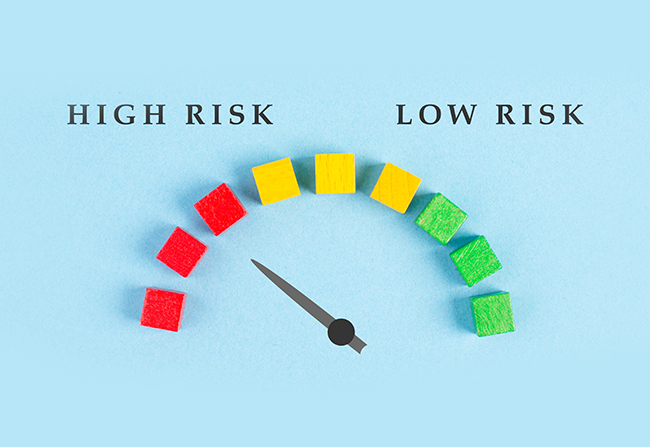
Trading is not just about numbers, charts, and strategies—it’s also about the psychology behind the decisions you make. How you think, feel, and react to market movements can have a profound impact on your success or failure as a trader. Managing emotions and maintaining mental discipline is crucial for making objective, informed decisions and avoiding impulsive behaviors that can lead to significant losses.
Trading psychology is often overlooked by new traders, who may focus primarily on technical analysis or strategies without fully understanding how emotions like fear, greed, and impatience can cloud judgment. Developing a strong mental framework is essential for controlling these emotions and becoming a more disciplined and consistent trader. Let’s explore how psychology impacts trading and how you can master your emotions to improve your trading performance.
How Emotions Impact Trading Decisions?
Emotions play a central role in decision-making, particularly in high-stress situations like trading. The most common emotions traders experience are fear, greed, hope, and regret. Each of these can influence trading decisions in unhealthy ways, leading to mistakes such as entering or exiting trades too early, ignoring risk management rules, or chasing the market in an attempt to recover losses.
Fear: Fear can prevent traders from taking necessary risks, causing them to hesitate when they should act. This might lead to missing profitable opportunities or exiting trades too early due to the fear of losing money.
Greed: Greed, on the other hand, can cause traders to take excessive risks, holding on to trades for too long or aiming for unrealistic profits. This often leads to losing more than anticipated when the market moves against them.
Hope: Hope can cause traders to hold onto losing positions in the hope that the market will turn around, leading to bigger losses. Traders often fall into this trap after a string of losing trades, hoping that one trade will recover their losses.
Regret: After a loss, traders may experience regret, which can lead to revenge trading—taking impulsive, emotional trades to make up for previous losses. This can spiral into further losses and poor decision-making.
The Importance of Discipline in Trading!
Discipline is perhaps the most important aspect of trading psychology. A disciplined trader adheres to their trading plan, sticks to their risk management rules, and avoids being swayed by emotions. Developing this kind of discipline can help mitigate the effects of fear, greed, and other emotions that lead to poor decision-making.
One way to build discipline is to set clear rules for entering and exiting trades and to strictly follow those rules. Having a set routine and following it consistently will help take the emotional aspect out of your trading decisions. This means avoiding impulsive actions based on short-term market movements or external factors.
Developing Emotional Control and Mental Toughness:
Emotional control and mental toughness are crucial for handling the ups and downs of trading. Successful traders don’t let losses or wins affect their emotions too deeply. Instead, they maintain a calm, focused mindset and are able to stick to their plan, regardless of market conditions.
Here are some strategies to develop emotional control and mental toughness:
- Accept Losses as Part of Trading:
Losses are inevitable in trading, and successful traders understand this. Rather than being discouraged or trying to avoid losses, focus on accepting them as part of the learning process. Every trade is a step toward improving your strategy, and a loss doesn’t define your ability as a trader. - Focus on the Process, Not the Outcome:
It’s easy to get caught up in the outcome of each trade, but this can lead to emotional decision-making. Instead, focus on the process—following your strategy, managing your risk, and sticking to your plan. By doing so, the outcomes will take care of themselves over time. - Stay Present and Avoid Overthinking:
Overthinking can lead to indecision, anxiety, and missed opportunities. When you focus too much on potential outcomes or past trades, you risk losing sight of the present. A key element of emotional control is staying present and avoiding unnecessary mental clutter that interferes with your decision-making. - Take Regular Breaks:
Trading can be mentally exhausting, especially after experiencing losses or extended periods of volatility. Taking breaks helps you reset and return to the market with a clear, refreshed mindset. Step away from the charts for a few minutes, stretch, or engage in an activity that helps you de-stress.
Building a Strong Trading Mindset:
A strong trading mindset is essential for long-term success. This involves developing a positive, growth-oriented attitude toward both wins and losses. Traders who view setbacks as learning opportunities and maintain a solution-focused approach are better able to weather difficult times.
- Set Realistic Expectations:
Unrealistic expectations can set traders up for disappointment. Focus on setting achievable goals and managing your risk. Understand that success in trading doesn’t come overnight, and the path to profitability is often long and filled with challenges. - Avoid Comparing Yourself to Others:
Every trader has their own journey, and comparing yourself to others can be detrimental to your progress. Focus on your personal growth and continue to refine your strategies. Understand that other traders may have different risk tolerances, time commitments, and experiences, so their results may not be applicable to your own trading path. - Develop a Growth Mindset:
Traders with a growth mindset embrace challenges and see them as opportunities to improve. Instead of being discouraged by losses, view them as valuable lessons. Always look for ways to enhance your skills, whether through reading, practicing, or reviewing your trades.
Practical Tips for Managing Trading Psychology:
- Keep a Trading Journal:
Writing down your trades and the emotions you felt during them can help you identify patterns in your behavior. A journal allows you to track your progress, reflect on mistakes, and celebrate your successes. - Practice Meditation or Mindfulness:
Meditation and mindfulness can help you stay calm, reduce stress, and improve focus. By practicing these techniques, you can improve your emotional control and develop a more positive mindset. - Seek Support and Feedback:
Don’t be afraid to reach out to other traders for support or feedback. Whether it’s joining a trading community, participating in forums, or talking to a mentor, having a support system can help you stay grounded and motivated during challenging times.
Conclusion:
Mastering trading psychology is essential for achieving success in the markets. Emotions like fear, greed, and hope can cloud your judgment and lead to impulsive decisions, but by developing emotional control and mental toughness, you can mitigate these risks. Building discipline, focusing on the process, and cultivating a strong mindset will help you stay consistent in your trading approach, even during difficult times.
Trading is a marathon, not a sprint. By taking control of your emotions, managing your risk, and maintaining a positive attitude, you can navigate the ups and downs of the market and improve your chances of long-term success.




